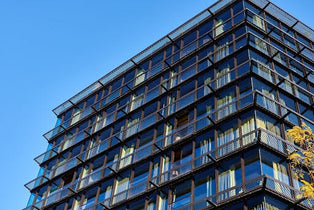
TLDR
The term ‘green economy’ has grown to be closely associated with sustainability and green policy. On the other hand, the blue economy is just as relevant, yet much less known. Focusing primarily on ocean environments, it aims to promote the sustainable use of the world’s watery resources.

Although ocean plants produce nearly half of the air we breathe, humans routinely devastate these habitats. In fact, more than 60% of major marine ecosystems have degraded significantly as a result of human use.
To protect our oceans and sea life, we must educate ourselves, and the blue economy is a great place to start.
What Is the Blue Economy?
Put simply, the blue economy is a comprehensive plan for the sustainable use of ocean resources. It boasts goals of promoting economic growth, improving livelihoods and jobs, and maintaining healthy marine ecosystems. To achieve these goals, the blue economy has several components.
Fisheries & Aquaculture
According to World Bank, fisheries contribute more than $270 billion to global GDP, employ 300 million people, and feed another 3 billion. Needless to say, the industry is massive, and any disruption is felt far and wide.
Rising ocean temperatures and increased ocean acidity cause more and more shortages to occur every year. As a result of these shortages, uncertainty and anxiety create a sense of urgency which can lead to the overfishing of already struggling populations.
Tourism & Economic Growth
Around the world, about 1 in 11 people attribute their livelihoods to tourism. When managed appropriately, ocean and coastal tourism can foster growth in Small Island Developing States. Diving, marine archaeology, surfing, and recreational fishing are just a few ways to attract tourists and support budding ocean economies.
Furthermore, tourism makes sustainable development possible. Such development also benefits the economy while allowing communities to protect natural and cultural resources.
Renewable Energy in Coastal Economies
Many Small Island Developing States rely on imported fuel to generate power. Not only is this option incredibly expensive, but the environmental cost of transportation and use is damaging as well.
The use of renewable energy — such as offshore wind farms, tidal energy, and thermal energy conversion — shows promise for coastal economies. These clean energy options cost less, promote economic growth, and preserve delicate ocean ecosystems.
Climate Change & the Blue Economy
Oceans make up more than 70% of the planet’s surface, and they play roles in mitigating climate change. However, they’re also vulnerable to coastal erosion, acidification, rising temperatures, and melting polar ice. For this reason, protecting the oceans is paramount.

Each component of the blue economy also works to boost coastal economies. Although the long-term benefits of the blue economy are financially and sustainably beneficial, initial investments can be steep. Economic growth is the most reliable way to ensure lasting change.
Supporting the World’s Ocean Environments
Many of us lack the resources to enact large-scale change. Still, there are actions we all can take to protect our oceans. These small actions add up, and when they do, they have a big impact.
Here are a few ways you can support ocean ecosystems every day:
- Conserve water to prevent wastewater from reaching the ocean.
- Use fewer chemicals, and when you do, make sure to dispose of them properly.
- Boat responsibly by anchoring only in sandy areas and adhering to no-wake areas.
- Reduce vehicle pollution by walking or biking to keep oceans from heating up.
- Volunteer for beach cleanups to keep trash from harming sea life.
By consistently doing your part, you can help protect ocean ecosystems from the effects of climate change.
The Blue Economy & the Future of the Planet
In order to succeed, the blue economy requires a combination of small- and large-scale actions. We all need to do our part to protect the planet and mitigate the effects of a changing climate.
Share this blog on Facebook to spread the word about the blue economy!



0 comments